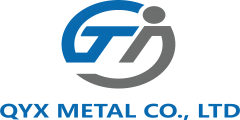Outdoor scenes: technological breakthroughs in lightweight and multifunctionality
1. Lightweight design reduces weight
Density advantage: The density of titanium alloy is only 60% of stainless steel. Taking a 300ml capacity cup as an example, its weight is reduced by about 40% compared to stainless steel products, significantly reducing the burden of backpacks in hiking, mountaineering and other scenarios.
2. Corrosion resistance and high temperature resistance
Acid and alkali corrosion resistance: Titanium alloy is not easily corroded on the surface when in contact with acidic liquids such as fruit juice and carbonated beverages, extending its service life.
Open flame direct burning compatibility: Some titanium alloy cups support direct heating on campfires or stoves, meeting outdoor water and cooking needs.
3. Multi functional integrated design
Multi purpose: With detachable handles, foldable cup lids, and other designs, titanium alloy cups can be used as kettles, tableware, and even small cooking utensils, reducing the number of outdoor equipment.
Kitchen Scene: Expanding from a Single Vessel to a Whole Scene
1. Corrosion resistance suitable for complex cooking
Salt spray and oil resistance: Titanium alloy is less prone to rust or oil stains on the surface when in contact with high salt and high oil ingredients such as seafood and soy sauce, significantly reducing the difficulty of cleaning.
2. No metal precipitation ensures food safety
Acidic environment stability: When storing acidic foods such as lemon juice and tomato sauce, titanium alloy will not release heavy metal ions, avoiding food safety hazards.
3. Environmental attributes promote sustainable applications
Recyclability: The recycling rate of titanium alloy materials is over 90%, and some brands have launched "trade in" services to extend the product lifecycle.
Challenges and optimization directions of technology enabled scenarios
1. The insulation performance needs to be improved
Thermal conductivity characteristics: The high thermal conductivity of titanium alloy results in weaker insulation effect than stainless steel. Some brands have improved this problem through double-layer vacuum structure or cup wall coating technology.
2. Contradiction between processing costs and scale
Difficulty in precision machining: Titanium alloy has high hardness and is prone to sticking to knives, resulting in large mold wear and long processing time. It is necessary to reduce costs through automated production lines and material modification technology.
3. Innovation demand under homogeneous competition
Design differentiation: With the expansion of the titanium alloy cup market, brands need to avoid product homogenization through innovations such as color processing (such as anodizing) and functional modularization (such as replaceable cup lids).
The expansion of application scenarios for titanium alloy cups is essentially a reflection of the deep integration of high-performance materials and consumer demand. From the health attributes of office scenes to the lightweight requirements of outdoor scenes, and to food safety considerations in kitchen scenes, titanium alloys are reshaping the value boundaries of daily utensils through precise matching of technical characteristics and scenario based design. In the future, with the advancement of material modification technology and manufacturing processes, titanium alloys are expected to achieve large-scale applications in more consumer fields.
